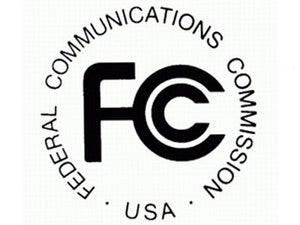America rules out 'two-speed' internet
Web providers warned not to charge heavy users of bandwidth

America's top media regulator has promised to safeguard the neutrality of the internet, coming out against the telecoms companies and internet providers who want to start charging heavy users for access or blocking certain bandwidth-hogging services.
Julius Genachowski's comments, in his first major speech since becoming chairman of the Federal Communications Commission, delighted campaigners who fear that "congestion charging" could kill the spirit of the internet and make it harder for users to access niche websites by bloggers and independent publishers.
Mr Genachowski also signalled that the new net neutrality rules would apply to mobile phone services, too, protecting the fastest-growing area of internet access. "This is not about government regulation of the internet," he said. "We will do as much as we need to do, and no more, to ensure that the internet remains an unfettered platform for competition, creativity, and entrepreneurial activity."
Every time an internet service provider or mobile phone company blocks or slows access to a website or for a particular web application, such as video file sharing, the FCC will investigate and could levy fines.
The FCC is stepping straight into one of the most contentious issues surrounding the future of the internet.
Telecoms companies have lobbied hard against net neutrality laws from Congress or rules from the FCC, because they want to start charging popular websites for the large amounts of bandwidth they use. They contend that their cable networks will soon become congested because broadcasters and other sites are starting to offer video over the internet. Charging these companies is only fair, they say, and would generate cash to invest in upgrading the network.
The media giants that are fighting to prevent those charges have been joined by an army of smaller opponents who say that, instead of an anarchic free-for-all that has dramatically broadened free speech and democratised access to information, the internet would come to be dominated by the few companies that could afford to pay to make their content most easily available. A future generation of companies such as Google could have been throttled at birth if they were confined to the internet's B-roads.
It is a debate being played out across the world. In the UK, BT has said it can no longer afford to subsidise the cost of sending huge media files from the online video-on-demand services such as the BBC's iPlayer.
The US regulator's detailed proposals to protect net neutrality will be released next month, and the rules will most likely face stiff opposition from Republican members of the FCC. They could also face a legal challenge. A federal appeals court is already looking at whether the FCC had the power last year to censure cable company Comcast for throttling certain customers' high-bandwidth video connections.
The Competitive Enterprise Institute, a right-wing lobby group, damned Mr Genachowski yesterday. "Agencies should not pick sides between content and infrastructure providers in disputes over pricing, access, service and other terms," said Wayne Crews, CEI vice-president for policy. "Sparring behemoths like Google, Apple, and AT&T can take care of themselves."
Join our commenting forum
Join thought-provoking conversations, follow other Independent readers and see their replies
Comments